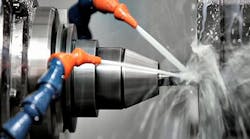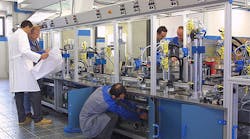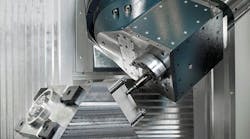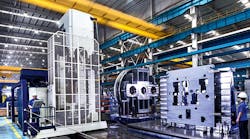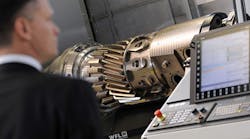Italian manufacturers’ new orders for machine tools fell for the third consecutive quarter during Q4 2016, though the trade association representing that industry described the situation as “stationary,” with demand from foreign buyers showing notable strength. UCIMU-Sistemi per Produrre, which represents manufacturers of machine tools, automation systems, and auxiliary products, said its members’ fourth-quarter 2016 new orders rose just 0.3% versus the Q4 2015 result, and that its index of machine tool orders (2010 average = 100) increased to 133.3.
The modest Q4 2016 results contrast with the enthusiastic forecast that UCIMU issued at the end of last year, when they claimed new tax provisions would encourage Italian manufacturers to boost their capital investments in the months to come. That change, which allows businesses to depreciate the value of their new investments by up to 250%, was implemented last September and took effect at the start of 2017.
Early in January, UCIMU forecast Italian machine-tool exports would rise 1.7% year-over-year for 2017 (having fallen 3.3% in 2016) to an estimated $3.4 billion.
Now, however, UCIMU notes that domestic new-order volume declined in Q4 (-12.1% versus Q4 2015) for the first time in over three years, 13 consecutive quarters of rising demand value for the Italian industry. Orders from foreign buyers rose 3.4%, compared to the previous year.
For the full 12 months of 2016, UCIMU’s index (130.8) rose 1.6% versus 2015. Total foreign orders for 12 months declined 2.6% compared to the previous year, while domestic orders increased by 7.4%, “a testimony to the liveliness of the Italian market,” the trade group stated.
UCIMU called 2016 “the best year in terms of order collection” since the 2008-09 recession, but it added that the gains lost during the recession have not yet been regained.
“Substantially, the decrease recorded since the last quarter does not worry us at all, because,” according to Massimo Carboniero, president of UCIMU: “It is clearly due to the waiting effect for the Hyper-Depreciation at 250%. The market is actually flourishing, as we can already see today, not even a month after the re-opening of production activities.”
Carboniero continued: “The announcement of the government authorities regarding the National Plan ‘Industry 4.0’ made in September, followed by the subsequent optimizations and explanations concerning the applicability of the measures, … led the enterprises to wait and postpone the orders until the new year.”
